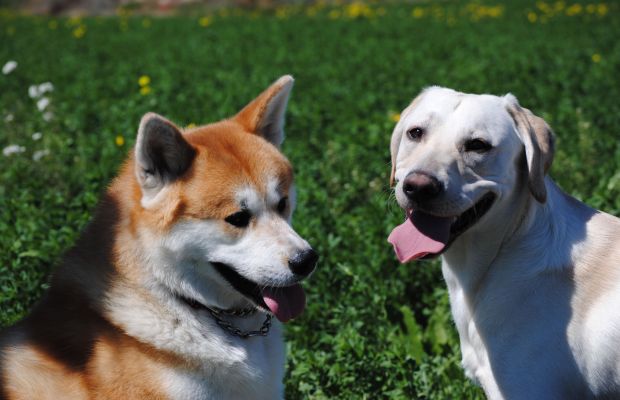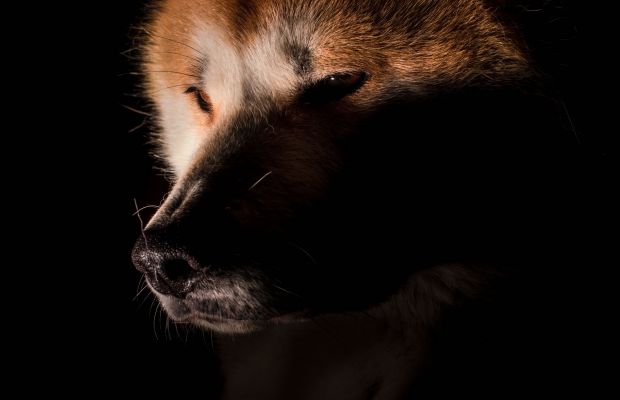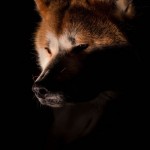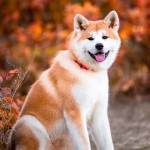Akita – Independent and Loyal
Other names for this breed:Akita Inu, Kuma Inu (Bearhound), Japanese Akita, American Akita, Great Japanese Dog
Country of origin:Japan
Traits:
Weight:Dogs 27–59 kg (60–130 lb), Bitches 25–45 kg (55–100 lb)
Height:Dogs 64–71 cm (25–28 in), Bitches 58–66 cm (23–26 in)
Coat:Double coat
Color:Ginger, Red, brindle white, sable all with white fur on the ventral areas of the dog (genetics variants can include black & grey) (urajiro)
Litter size:3–12 puppies (avg. 7–8)
Life span:10 years
Classification:
AKC - American Kennel Club: Working
UKC - United Kennel Club: Northern Breed
TKC - The Kennel Club: Utility
NZKC - New Zealand Kennel Club: Utility
FCI - International: 5 - Spitz and Primitive Types, 5.5 - Asian Spitz and Related Breeds
The Akita is the largest of the spitz breed group (FCI classification). They are large and powerful dogs, with short hair and a double coat that makes them well suited for cold weather. The Akita’s large head gives it a noble appearance, as well as its distinctive triangular ears (the outer edges of which are frilled). Although they’re best suited to outdoor life, they can also be happy indoors if given enough exercise and mental stimulation.
Akita dogs are independent and loyal
Akitas are independent dogs and they don’t like to be told what to do. If you want an Akita that will obey your every command, look elsewhere. They are not the type of dog who wants to follow you around all day long and they can be difficult to train if you don’t have a strong leader in your house.
Akitas need a job or something fun going on so that they aren’t just lounging around all day long! As far as apartment living goes, akita dogs are not great options for apartment dwellers because they require plenty of space for running around and playing fetch with their owners (or other people).
They have a very powerful bark
The Akita is a large dog breed that was bred in Japan. They are known for their powerful jaws and deep bark.
The Akita is one of the oldest breeds, dating back to the 800s AD. According to some sources, it’s believed that this breed originated from an ancient breed called the Shiba Inu (the name means “puppy”).
The Shiba Inu was a companion of the Yayoi people, who were living in the northern part of Japan. The Akita is thought to have descended from this breed, which is why they share many similarities.
Their double coat makes them well suited for cold weather
The Akita is a very good dog to have in cold weather because of its double coat. This means that they have a thick undercoat and long outer coat (the hair on the top).
This helps keep them warm and protected from the elements when it’s cold out. However, they are not suited to hot humid climates or warm dry climates either—so you’ll want to make sure that your Akita’s home is somewhere between these two extremes if you want him/her around for longer than an afternoon walk before resuming your daily activities.
Akitas like to roam, so make sure you have a secure fence
Akita dogs are very energetic and need to be exercised. They love to roam, and they can get into trouble if they aren’t kept on a leash or in a fenced area. Make sure that your fence is secure enough for them to not be able to jump over it, but also strong enough for them not to break through it when running at full speed. It should also have no sharp edges or gaps where an Akita could bite through the fabric of your fence so that you don’t end up with stitches!
If you’re going for an outdoor dog like these guys require, make sure there’s nothing nearby—like trees or construction equipment—that could potentially come loose during an altercation between two huge animals who weigh around 100 pounds each (that’s only about 30 pounds less than their average adult weight).
They are strong willed and need consistent discipline
Akitas are known for their independence, and they’re not a good match for families with young children. If you have kids, you should consider getting an adult dog instead of a puppy. The same goes for any other pets considering adopting one of these dogs: if it’s not going to be treated as part of your family unit, then it’s probably best that you don’t get one at all!
Akita dogs can be stubborn, so consistency is key when training them. Don’t expect miracles from your pet right away; instead give him time to learn what is expected of him before rewarding him with treats or praise (or anything else). This can take months or even years depending on how well-trained he is!
They’re best with early socialization
Socialization is the process of helping your dog to be comfortable around other dogs, people and new environments. It’s important for all dogs, but particularly so for akita dogs as they are more sensitive than other breeds.
Akitas are descended from Japanese hunting dogs that were used to hunt bears and deer in mountainous areas. They have a strong prey drive and need lots of exercise because they don’t do well when they’re not active.
They can be lap dogs – but not always
Akita dogs are not always lap dogs. They can be independent and strong willed, but they also need consistent discipline. You’ll want to train your Akita before you get one, or else you may end up with a dog who doesn’t listen well enough when you’re teaching him commands.
Akitas can be stubborn, which makes them great watchdogs but not so good at getting along with other animals or people unless they’re raised in an environment where they know that everyone is going to obey their orders (and then maybe only if those orders come from the owner).
They don’t shed constantly, but it’s pretty heavy when they do
The AKC breed standard states that Akitas shed once a year. They’re actually quite heavy shedders; if you have an Akita dog, make sure to brush him or her regularly during the spring and fall when their coats are growing out.
Akita coats are very thick, and they’re often described as feeling like a second skin. This is because the coat isn’t just made up of fur—it also contains a lot of fat that helps protect the Akita against both cold weather and predators.
Conclusion
We hope you enjoyed reading our article and learned something new! If you decide to get an Akita dog for yourself we’re certain you won’t regret it. Just make sure you understand their downsides as well as upsides.
Akita – Independent and Loyal Photo Gallery
You can click on the gallery images below to view them full sized (most are in wallpaper resolution!).





















